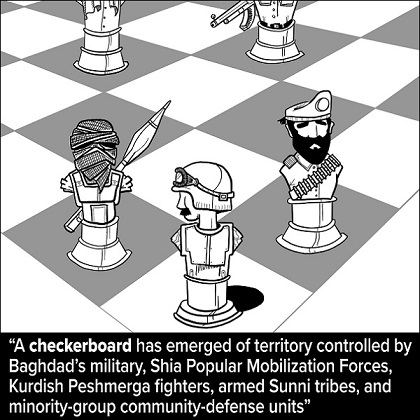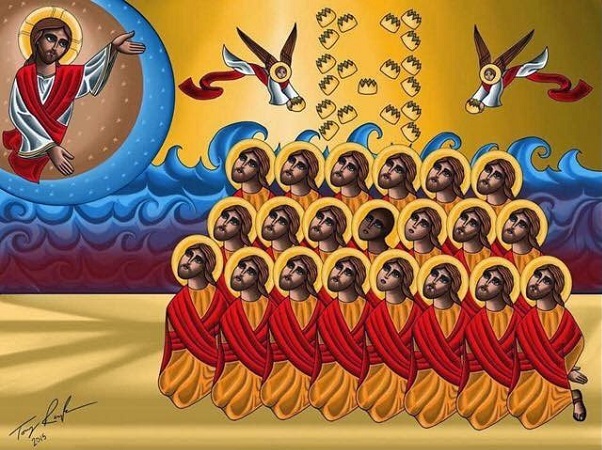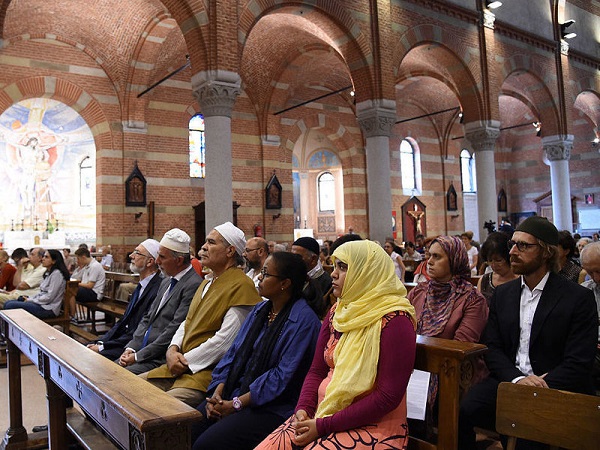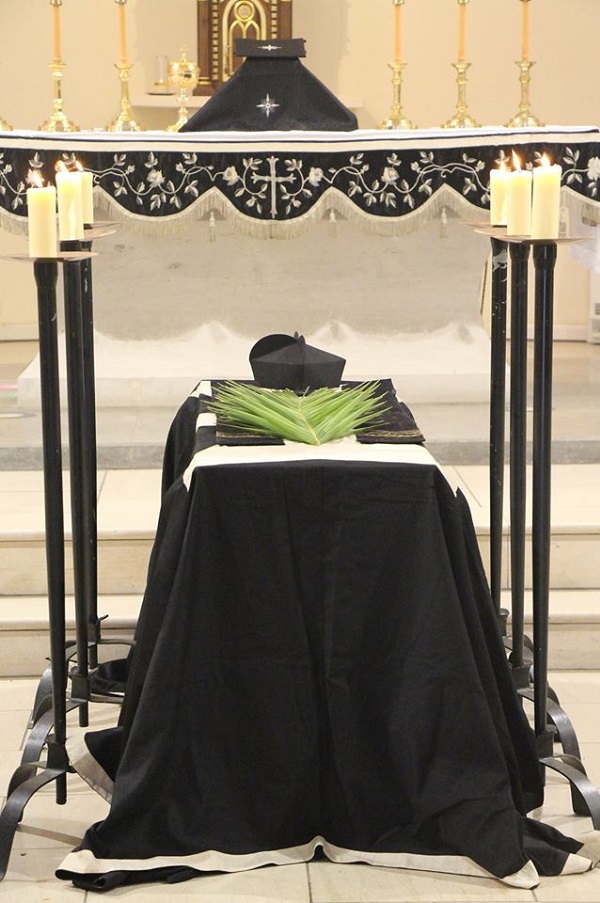Game and other metaphors
Tuesday, December 19th, 2017[ by Charles Cameron — chess, billiards, dominoes and roulette — one horse, but no cats ]
.
I’m always fascinated by chess and other game metaphors, but they’re generally verbal, so this one is a treat:
That’s from a War on the Rocks / US Institute of Peace piece, Harnessing Iraq’s deadly array of armed groups after ISIL, by Sarhang Hamasaeed — the first in a series.
**
War is the continuation of games by other means. Everyone and her donkey has an “x is the continuation of y by other means” formulation, and they’re mostly a bit lame — this is mine.
**
Some recent game metaphors I’ve caught while my computer has been in the shop:
Chris Matthews had a rather neat billiards insight: “you always want to place the ball after the shot..
Somewhere — it’s probably a cliche by now — “the first domino to fall”.
“Nasser is playing roulette with the stability of the whole world” — in the TV series, Crown. second season, episode 1.
**
Okay, non-game metaphors, of particular interest when they’re religious:
Al Franken was identified as a sacrificial lamb after his fellow Dems turned on him en masse by Kevin Nealon, a metaphor disputed by Stephanie Ruhle.
Scapegoats, sacrificial lambs amd martyrs are about as heady a set of transcendental metaphors as one might hope for — Franken is in heady conceptual company here.
And here’s a newly-minted Franken-word:
There’s a new word which has registered on the media’s radar, and that is “unresign” — or “un-resign,” depending on the news organization.
Aah, aah.
Okay, back to religion. Church Militant — Steve Bannon apparently used the phrase at a Vaticaan conference in 2014:
In his presentation, Mr. Bannon, then the head of the hard-right website Breitbart News and now Mr. Trump’s chief strategist, called on the “church militant” to fight a global war against a “new barbarity” of “Islamic fascism” and international financial elites, with 2,500 years of Western civilization at risk.
Samuel Freedman commented in the NYT:
While most listeners probably overlooked the term “church militant,” knowledgeable Catholics would have recognized it as a concept deeply embedded in the church’s teaching. Moreover, they would have noticed that Mr. Bannon had taken the term out of context, invoking it in a call for cultural and military conflict rather than for spiritual warfare, particularly within one’s soul, its longstanding connotation.
Metaphor? The Church as an army? Salvation Army? Or a direct reference to the Church, factually, actually, Militant?
**
Well-turned phrases:
“The cost of doing nothing is not nothing.” John Delaney, (D-MD)
“The Arabs never miss an opportunity to miss an opportunity,” quoted in The Jerusalem Post, November 2002.
Well, that’s a bit ancient. How about:
This is what hell looks like: a country where people talk about morals and wave bibles, defending someone who’s accused of pedophilia. .. and what we need is redmption.
That’s Frank Schaeffer, son of Francis Schaeffer — founder of L’Abri and the conservative right movement — on JoyAM. Fierce.
And cruel, but decidedly witty — this amazing headline:
**
Then there are the ouroboroi — the self-referential phrasings:
Rep. Eric Swalwell (D-CA):
You call it the Trump privilege. I call it the privilege privilege.
Also: “To spy on the spies.”
And somewhere: “investigating the investigators..”
**
Mercifully, no cute cats nor kitties.








